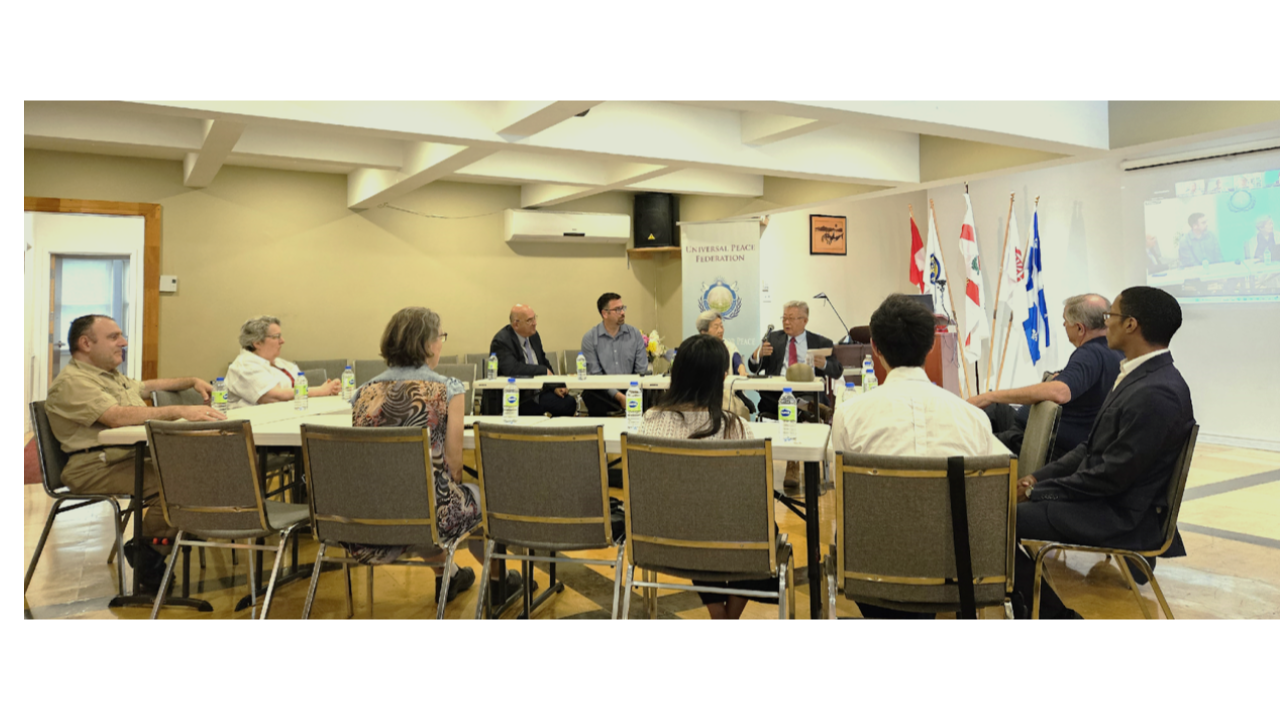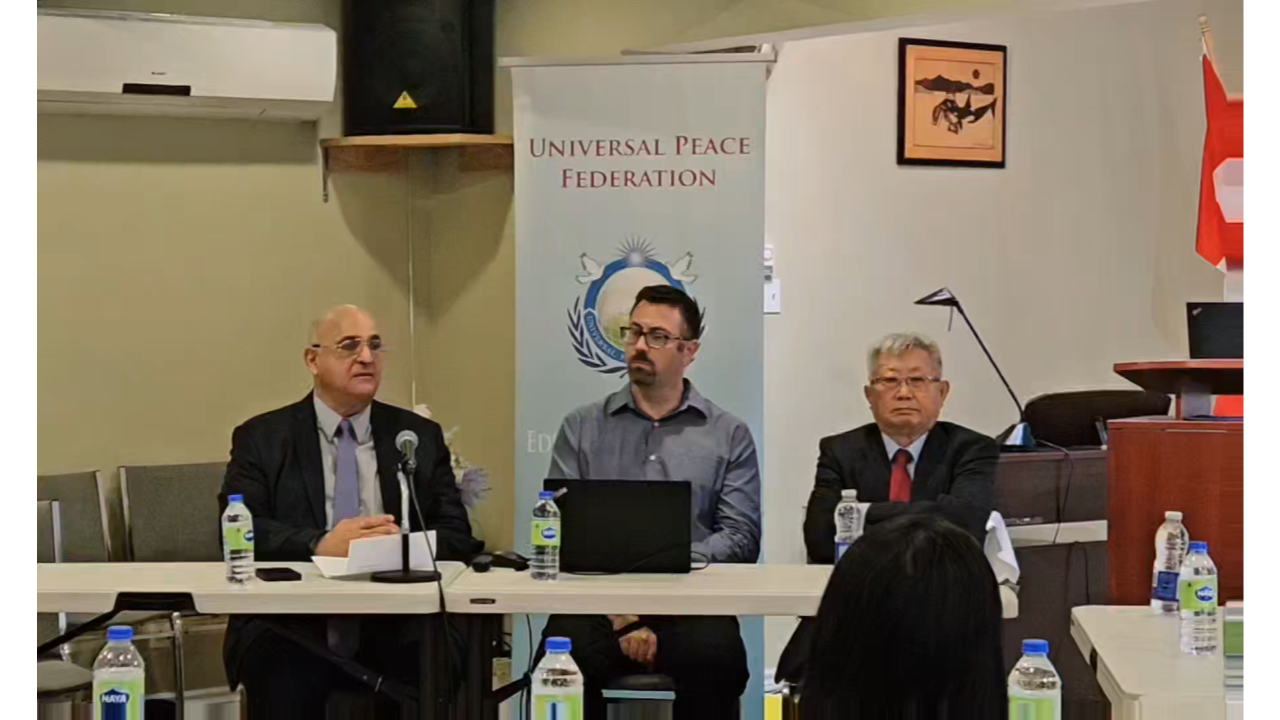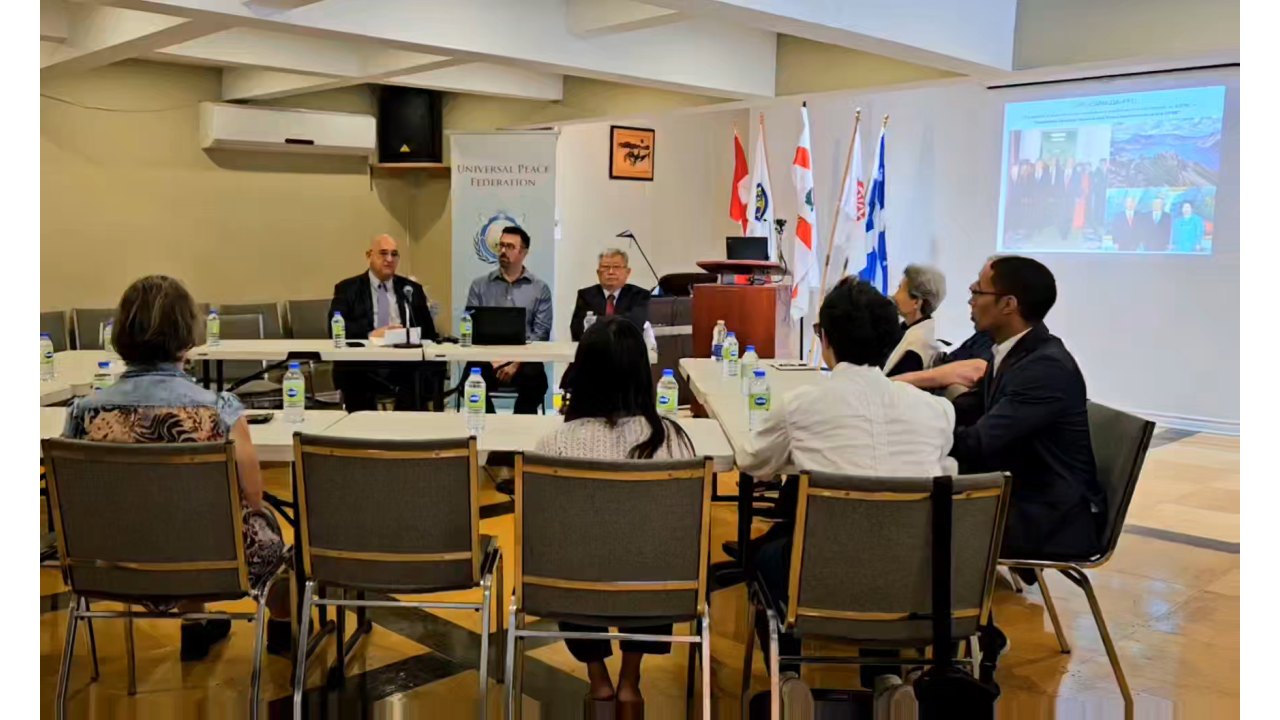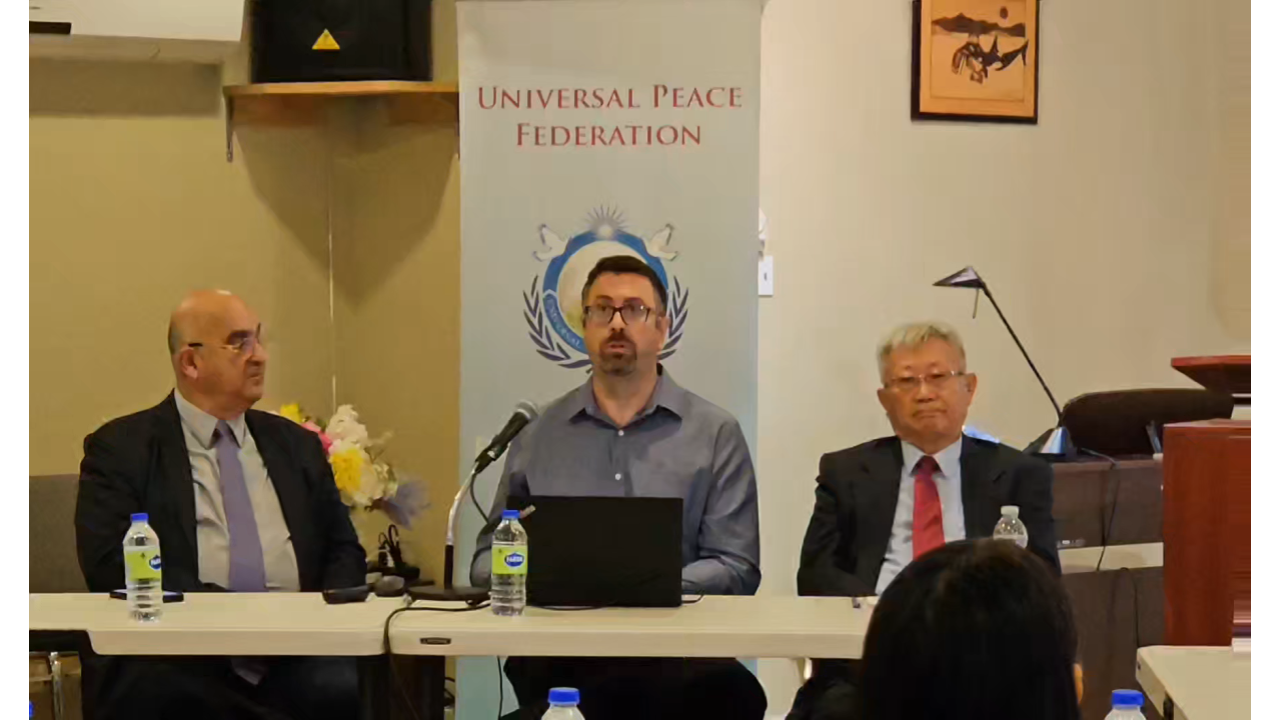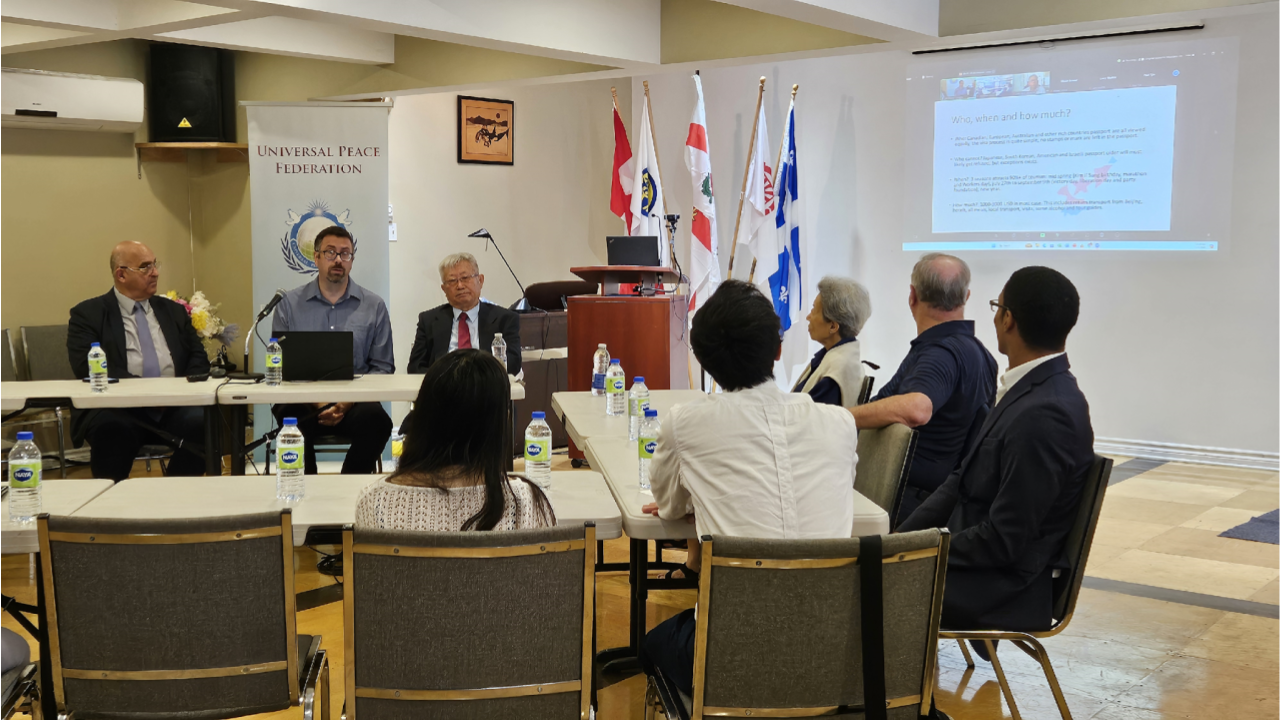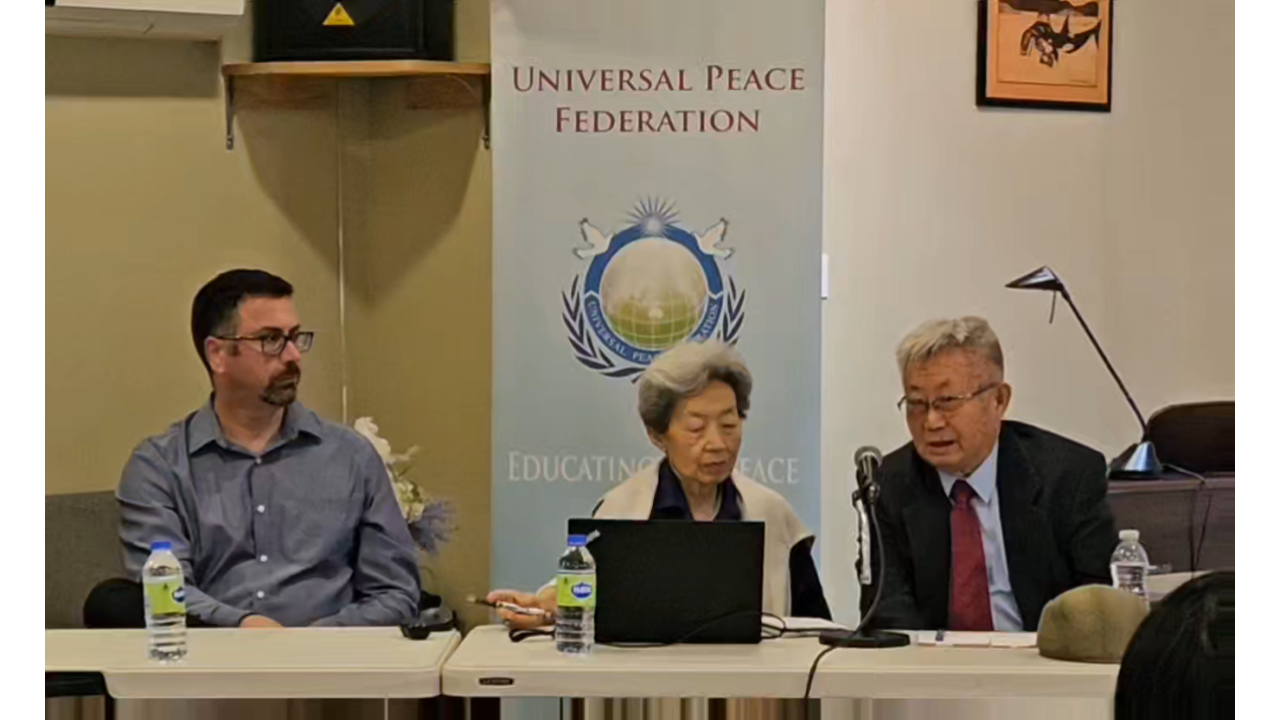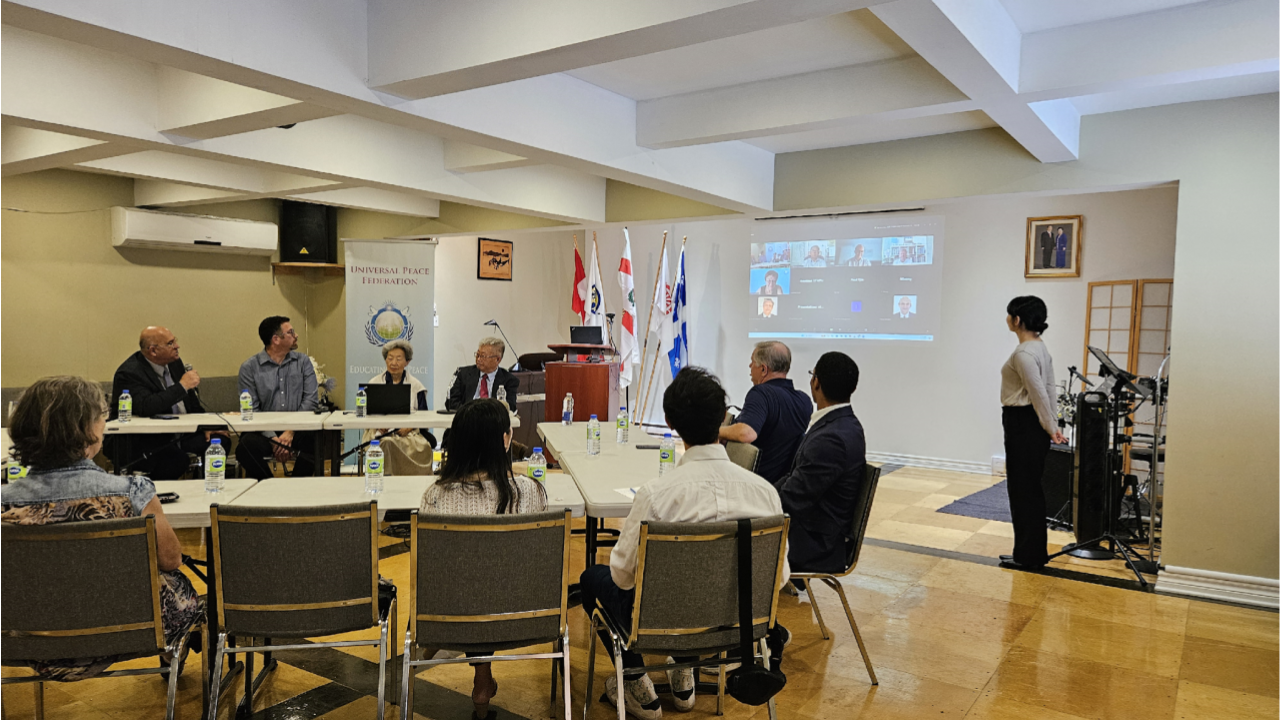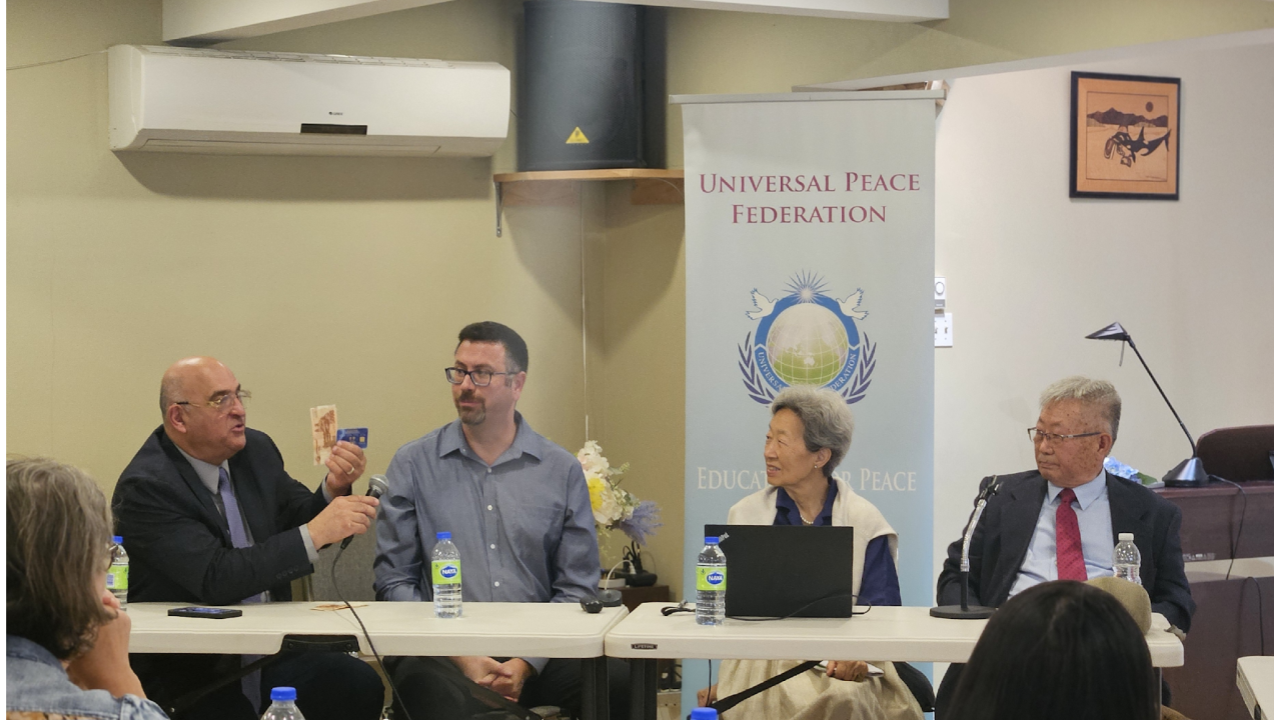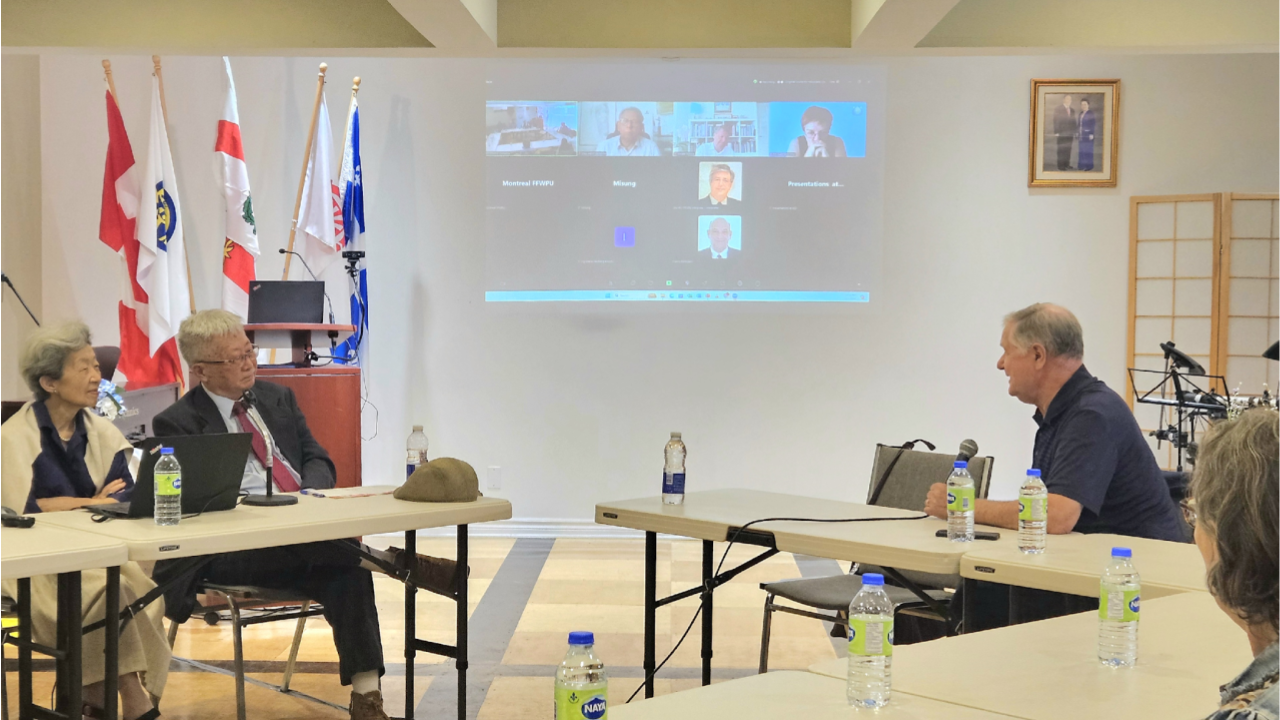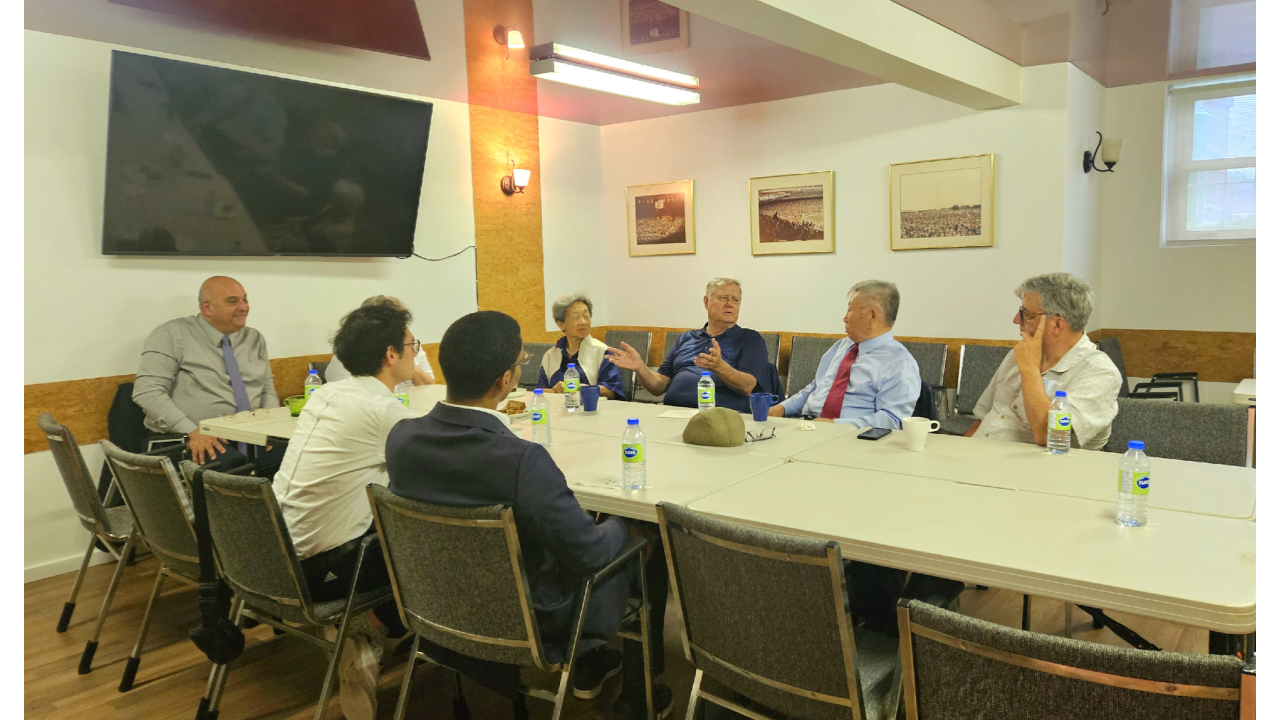The meeting was intended for a smaller audience with a direct interest in joining a tour to the DPRK next year in August. Moderating the gathering was Franco Famularo, President of UPF Canada.
Present to speak on the subject of the tour was veteran voyager Étienne Daoust who has travelled several times to the DPRK and has earned a master’s degree in communications documenting the extensive use of cell phones in the conduct of cross-border business transactions with suppliers in China.
His presentation focussed on various aspects of travel in the DPRK, including travel packages of different lengths and their costs, as well as travel tips within the country.
Mr. Su Hae Kim, a long-time participant in these meetings gave a response to Mr. Daoust’s presentation, highlighting the difficulties posed by the sanctions placed on the DPRK by the UN since 1996. One of the examples he provided was that it was not possible to buy diesel engines for their train service because of sanctions, and so required that they keep coal-fired engines in service to this day.
He emphasized the communitarian aspect of DPRK society which takes precedent over the private wishes of citizens, and in general, citizens respect communitarianism for its many benefits even if they result in some limitations.
Initially Mr. Kim was interpreted by Mrs. Ok Young Park, anthropologist and peace activist, but Mr. Kim broke into English for most of his remarks.
Questions came from the online audience, among them from Paul Tija, Dutch entrepreneur and prior collaborator in the series, and Mr. Jacques Marion, co-chair of UPF in Europe and the Middle East. Following the online audience’s questions was one from Robert Duffy, Sec-Gen of UPF Canada, concerning the communitarian emphasis in the DPRK as compared to the tendency to individualism evident in much of the world’s societies. Mr. Kim alluded to the higher value placed on the common culture and roots of Korean history from ancient times rather than on a preoccupation solely with the economic life of the society.
His main issue was the destructive drag on DPRK society based on sanctions that have been in place for almost 30 years, which had as their goal to deter the development of nuclear capability in the DPRK. Since sanctions have had no effect on the nuclear issue and, ironically, have served only to isolate the regime from the rest of the world, he argued, it might be time to review their usefulness, and perhaps allow the citizens of the DPRK to enjoy some of the benefits of updates to infrastructure for example, that would lead to a somewhat easier life.

